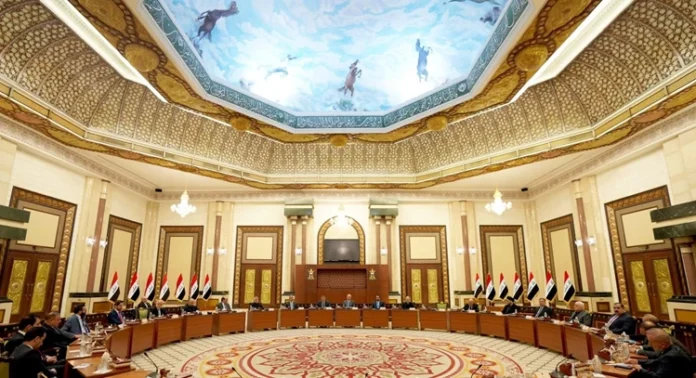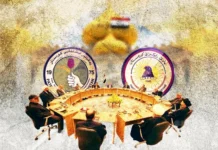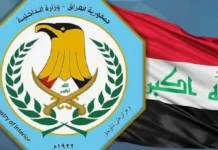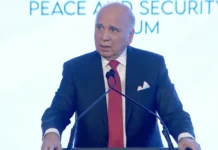Because it confirms the existence of a significant breach emanating from al-Sudani’s office, the case of espionage and blackmail that was discovered in the Prime Minister’s office caused Mohammed Shia al-Sudani great embarrassment.
Last week, Iraqi authorities made the announcement that they had discovered a network of wiretapping and extortion inside the government palace where al-Sudani does his daily work. According to sources familiar with the investigation, its activities targeted senior political leaders, parliamentarians, senior officials, judges, and businessmen.
So far, seven suspects have been apprehended, including Mohammed Juhi, the Assistant Director of Administration in Al-Sudani’s office.
The most significant scandal to befall Al-Sudani since he assumed office was the disclosure of the company’s wiretapping network, which many interpreted as the end of his political career.
Parliament is also looking into this network, so it appears that the government and the judiciary are not the only ones investigating the issue.
In an interview with Al-Maalouma, MP Hadi Al-Salami stated, “Spying on members of the House of Representatives is a very serious issue, and the Iraqi judiciary is conducting intensive investigations in various directions according to the information. Arrest warrants have been issued against some, and we are following the course of the investigations to determine the circumstances of what happened.”
He went on to say, “An official request was submitted to the Presidency of the House of Representatives in order to proceed with a parliamentary investigation to uncover the mysteries of the espionage case, who are the parties involved, and whether or not there is an external dimension to the case.”
He stated, “The espionage file carries three security risks: exceeding powers and laws, the risk of leaks and extortion, and the fact that it is illegal, highlighting the significance of the investigations’ findings in providing a clear picture of what took place.
Wael Abdel Latif, a judge and former minister, also thought that Mohamed Juhi and his spy team’s actions were a clear violation of the administrative ruling decision’s position.
“The transfer of these practices to high levels within state institutions constitutes a serious breach of the administrative system and threatens the safety of these institutions, especially if they are sovereign and at the top of the pyramid of power,” Abdul Latif stated in a statement to Al-Maalouma Agency.
He went on to say that “these practices are considered a clear violation of the position of the administrative ruling decision,” and that “we are awaiting judicial investigations into the suspicions of Mohammed Juhi and other figures regarding the circulation of files and communications, as the penalty for these actions according to the law may reach the death penalty.”
Mustafa Sand, an independent MP, said two weeks ago that the Karkh Investigation Court, which specializes in cases involving terrorism, had arrested a network from the government palace of the Prime Minister’s Office. The network was led by Mohammed Juhi, a close associate, and included a number of officers and employees.
He went on to say, “The network was carrying out a number of dirty acts, including listening in on the phones of a number of politicians and MPs.” The network also impersonated politicians, businesspeople, and channel owners, created fake news, and directed electronic armies. The network admitted its actions, and their initial and judicial statements were recorded. He revealed that one of his many confessions included pretending to be Saad Al-Bazzaz, the owner of Al-Sharqiya satellite channel, and sending a fabricated image of four MPs—Sand, Adi, Mohammed Nouri, and Haitham Al-Zahwan—to Al-Sharqiya channel for false news as well as sending the image to all of the MPs’ private phone numbers.





